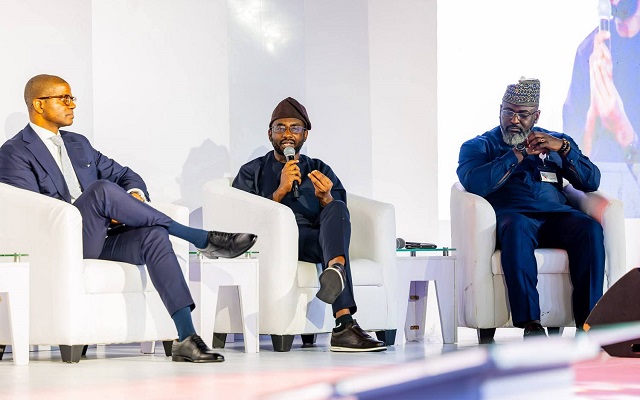News Highlights:
- AI as a Strategic Partner, Not a Threat
- Progressive, Collaborative Regulation of AI
The Director General of the National Information Technology Development Agency (NITDA), Kashifu Inuwa, has urged business leaders in Nigeria to adopt artificial intelligence (AI) as a strategic partner in innovation and economic advancement, rather than perceiving it as a threat to human jobs.
Speaking at the BusinessDay CEO Forum Nigeria held in Lagos, during a high-level panel session titled “Builders of the New Nigeria – Stories of Scale, Grit, and Innovation,” Inuwa challenged the traditional mindset of AI as merely a tool for automation.
He encouraged CEOs and executives to reimagine AI as a “thought partner” capable of unlocking new ideas, discovering novel business models, and driving competitive edge in today’s fast-changing global marketplace.
“I see artificial intelligence not just as a tool, but as a thought partner,” he stated, adding that the goal should not be to replace human input with AI but to collaborate with it in ways that enhance productivity and creativity.
Inuwa explained that although AI can outperform humans in certain tasks, its emergence should not spark fear of wholesale job displacement. Rather, its strength lies in automating specific skills and processes currently used in routine operations.
This, he said, necessitates a proactive repositioning of business leaders within the evolving technological landscape.
“The key is to position yourself at the centre of this collaboration. Yes, AI can outperform humans in many tasks, but it will not replace you or me. What AI will replace are the skills and processes we rely on today to perform our work,” he explained.
He further emphasized that CEOs and decision-makers must evolve their own capabilities and redefine their leadership roles to stay relevant in an AI-enabled world. The ability to work alongside intelligent systems, he noted, will determine the success of business leaders in the digital age.
To maximize the benefits of AI, Inuwa recommended assigning AI systems specific roles or personas—such as virtual lawyer, doctor, co-founder, or advisor—depending on the context. This approach, he said, would make human-AI collaboration more targeted, efficient, and impactful.
Despite his optimism, Inuwa cautioned business leaders to remain vigilant, stressing that AI systems should never be presumed ethical or accurate by default.
“This is where government’s role becomes critical. As regulators, we need to create policy labs where we can test AI technologies in safe, controlled environments. We must evaluate them thoroughly to ensure they are safe, ethical, and reliable,” he said.
Inuwa highlighted NITDA’s regulatory approach, which emphasizes collaboration, experimentation, and co-creation over reactionary restrictions. Rather than stifling innovation with premature regulation, NITDA partners with startups and the private sector to explore and test emerging technologies like AI.
“This is our approach to regulation. Rather than rushing to regulate based on fear, we collaborate with the private sector to experiment, learn, and build together. We co-create solutions, then use the lessons from these experiments to establish clear benchmarks that will inform future frameworks, guidelines, and regulations,” he explained.
According to Inuwa, this model of governance ensures that regulation is both supportive of innovation and protective of the public good. “Nigeria is setting a precedent for balancing technological innovation with societal responsibility, enabling businesses to thrive while ensuring that new technologies benefit the broader society,” he said.
“Our aim is to create an environment where businesses can innovate responsibly, while ensuring society as a whole benefit from these new technologies,” he concluded.
The BusinessDay CEO Forum Nigeria convened top-tier business executives, entrepreneurs, policymakers, and thought leaders from across the country.
The event provided a high-impact platform for discussions on scaling enterprises, fostering resilience, and leveraging technology—including AI, digital payments, and data analytics—to shape the future of Nigeria’s economy.
Panelists also shared powerful stories of perseverance and outlined strategic approaches to growth amidst the nation’s economic challenges.

